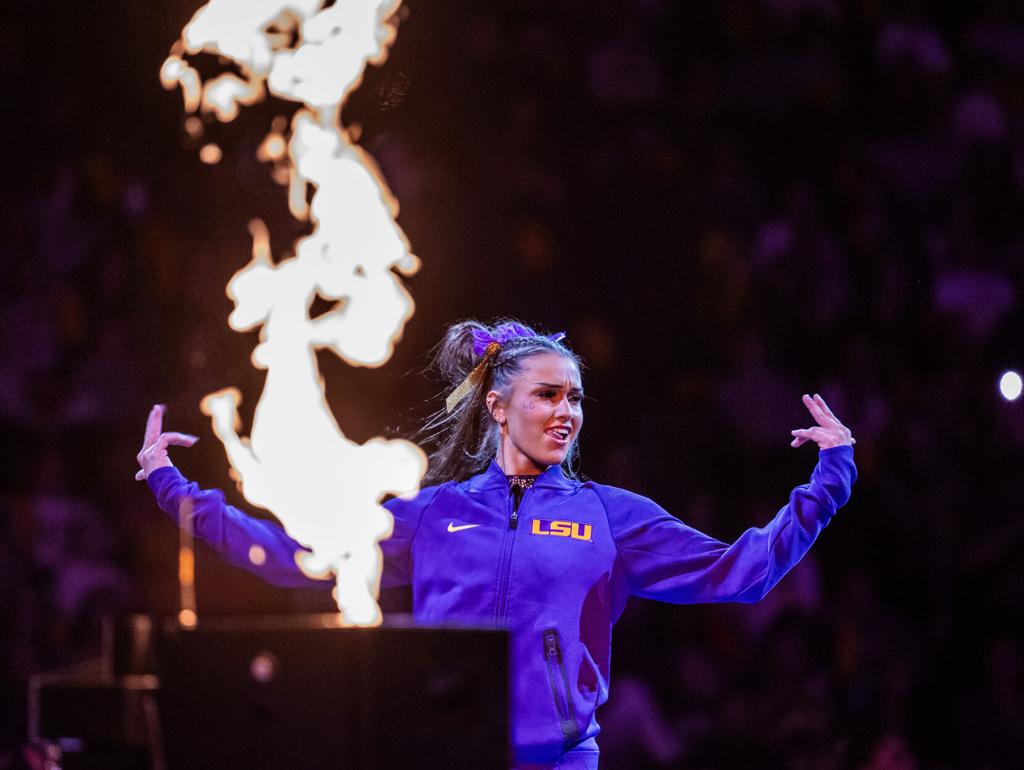LSU gymnast Olivia Dunne is among a group of athletes who have filed a formal complaint in a class-action lawsuit regarding the controversial settlement agreement involving the House. The case, which has attracted significant attention, raises questions about fairness and the treatment of college athletes in legal agreements tied to their image and compensation rights.
Dunne, who has garnered widespread fame for her athletic talent and social media presence, has been outspoken about the challenges athletes face in terms of compensation and rights management. As a prominent figure in the debate surrounding the name, image, and likeness (NIL) compensation framework, Dunne’s involvement in the class-action lawsuit further underscores the ongoing struggles athletes encounter as they navigate both the legal and business complexities of collegiate sports.
The House settlement, which was initially pitched as a fair resolution to ongoing issues surrounding NIL compensation, has been met with criticism from several corners of the athletic world. Critics argue that the terms of the settlement disproportionately benefit certain stakeholders while leaving athletes at a disadvantage. For athletes like Dunne, who have used their platforms to promote brands and generate income through NIL opportunities, the settlement’s perceived lack of fairness is a cause for concern.
At the heart of the complaint is the allegation that the settlement fails to adequately compensate athletes or offer clear pathways for ensuring their rights and earnings are properly protected in the evolving landscape of NIL deals. While the settlement was designed to address some of the financial discrepancies college athletes face, the plaintiffs, including Dunne, argue that it falls short of its goals. Specifically, the agreement lacks transparency regarding how athletes’ earnings will be distributed and the criteria for the claims process, leaving many participants feeling uncertain about their financial futures.
Dunne’s decision to join the lawsuit reflects a growing sentiment among athletes who feel the system is stacked against them. As one of the highest-earning student-athletes in the country, her involvement is significant not only because of her public profile but also because she represents a broader group of athletes who have successfully capitalized on NIL opportunities. Dunne’s experience as a high-profile athlete navigating the NIL space brings valuable perspective to the lawsuit, as she has firsthand knowledge of the challenges and potential pitfalls in managing contracts and endorsements.
Legal experts following the case suggest that the outcome could have far-reaching implications for how NIL deals are structured in the future. If the lawsuit is successful, it could set a precedent for more favorable compensation models and clearer protections for athletes’ rights, potentially reshaping the landscape of college athletics.
As the legal process unfolds, Dunne and the other athletes involved in the class-action lawsuit hope to secure a more equitable settlement that addresses their concerns and ensures college athletes are treated fairly in the growing world of NIL compensation. The case continues to draw attention as it highlights the evolving relationship between collegiate sports, athlete compensation, and the legal structures designed to protect their interests.
